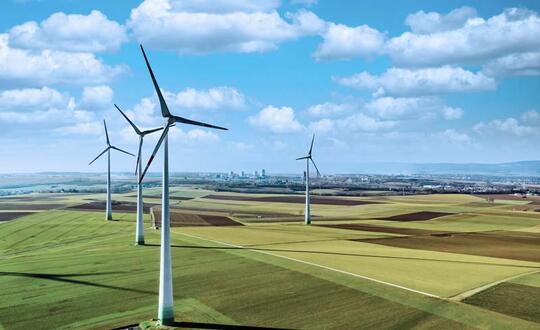
On 8 and 9 June 2022, the High Court heard together, three claims for judicial review brought by Friends of the Earth and the Good Law Project which alleged that the Secretary of the State ('SoS') had failed to comply with the Climate Change Act 2008 ('Act'). The Act required the SoS to set a series of 5 year carbon budgets leading up to 2052 to achieve the 2050 target (i.e., to reduce the UK’s greenhouse gas ('GHG') emissions to “net zero” by 2050, that is 100% lower than the UK’s 1990 baseline).
Mr Justice Holgate ruled that the Government's net zero strategy failed to take into account certain substantive evidence to analyse how the individual proposals and policies would achieve 95% of the target in the CB6 (carbon budget for the years 2033-2037) and how the 5% shortfall would be achieved. Additionally, the SoS also failed to provide detailed explanation in his report to the Parliament as to how the proposed policies would achieve the targets set in the CB6.
The claim and decision
The three main grounds for challenge were:
- Ground 1 – the SoS failed to carry out his duty under the Act in relation to:
i. The evidence provided to him, did not permit him to conclude that the net zero strategy policies could achieve the carbon budgets set under CB6 (alleged breach of section 13 of the Act); and
ii. The evidence and quantitative analysis provided to him during the briefing was lacking imperative information and therefore the SoS failed to take into account sufficient details before presenting the Report. - Ground 2 – the SoS failed to discharge his duty under Section 14 of the Act which required him to include further explanation in relation to the policies achieving 95% and not 100% of the CB6, which policies would account for the 5% shortfall and the time period over which the proposals would be effected; and
- Ground 3 – Section 13 and 14 of the Act should be interpreted having regard to Section 3(1) of the Human Rights Act 1998 ('HRA'), which requires anyone (court, tribunal or acting public authority) interpreting the laws of the country, to do so in a manner compatible with the rights protected under the HRA.
The Court upheld grounds 1(ii) and 2 in favour of the Friends of the Earth and the Good Law Project and rejected all other parts of grounds 1, 2 and 3.
The Court held that:
- The SoS was required to independently consider and analyse how the individual proposals and polices would achieve 95% of the target in the CB6 and the shortfall before presenting the Report to the Parliament and failed to do so
- The SoS also failed to explain how the 5% shortfall would be made up
- The SoS in his report, failed in his duty to inform Parliament and the public of all the evidence in relation to the above and the predicted reductions from the net zero strategy policies.
The Court ordered the SoS to provide a fresh report before Parliament under the Act before the end of March 2023.
The SoS was refused permission to appeal but may yet seek permission via the Court of Appeal.
Impact of this decision
The Court held that the SoS failed to meet the requirements of the Act by failing to set out clearly which individual policies and proposals would achieve 95% of the target in the CB6 and how the 5% shortfall would be achieved.
The decision also has wider significance in that it marks the first significant successful direct legal challenge to the government's policy on climate change and implementation of the Paris Agreement. Climate change litigation has until now been much more prevalent in other jurisdictions such as the USA, Australia, New Zealand and the Netherlands. This decision is likely to encourage others looking for avenues to raise challenges against the government as well as those seeking to challenge businesses on their planning around climate change. It will also serve to increase fundraising for similar actions in this jurisdiction.
This article is part of Womble Bond Dickinson’s Growing Global series. For more insights, click here to visit our Growing Global hub.
This article is for general information only and reflects the position at the date of publication. It does not constitute legal advice.






